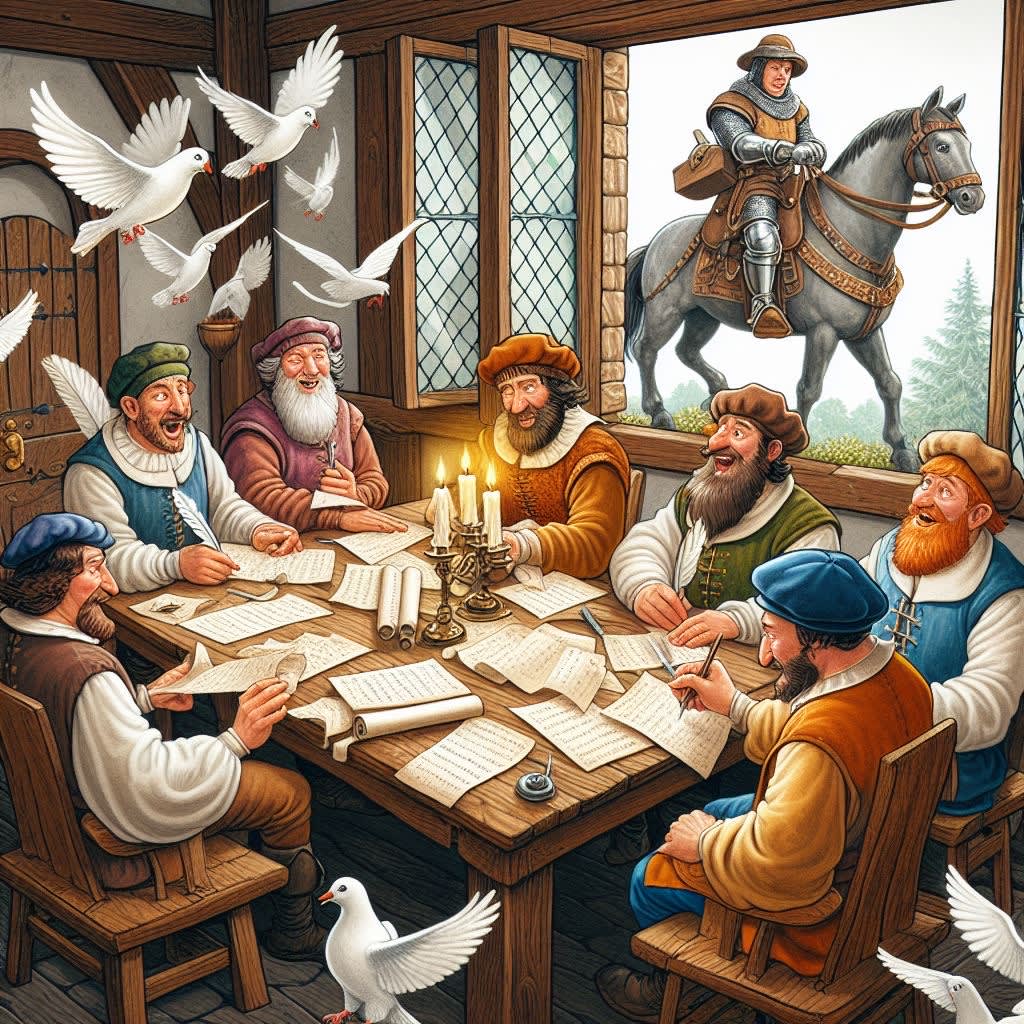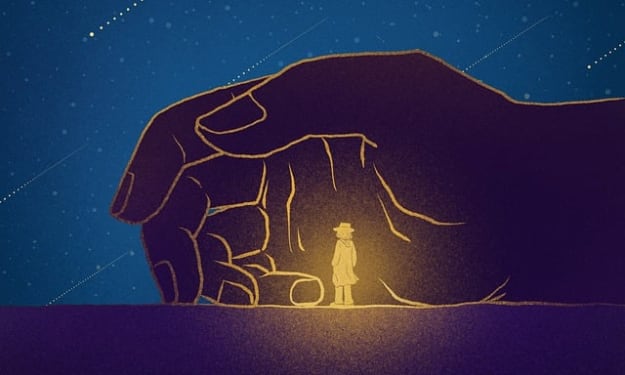How would you explain the internet to a medieval knight?
Medieval Internet

Ah, noble knight, gather 'round the digital hearth, for I shall weave a tale of the Medieval Internet, a realm both wondrous and perplexing.
In your chivalrous days of yore, communication flowed like mead at a feast. Messengers on horseback carried tidings from castle to castle, their parchment scrolls bearing news of battles won, alliances forged, and fair maidens rescued. But behold! The Internet is a different beast altogether—a mystical network of invisible threads that spans the globe.
The Digital Courtyard: Imagine a grand courtyard where troubadours gather, not to sing ballads, but to share knowledge. This is the Internet. Instead of minstrels strumming lutes, we have servers—mighty steeds that house information. When you seek wisdom, you ride forth on your trusty steed (a device called a computer), and these servers serve you answers.
The Web of Hyperlinks: Picture a vast tapestry woven with threads of gold. Each thread represents a webpage, adorned with words, images, and secrets. These pages are linked together like the chains of a knight’s mail armor. Click upon a link, and you traverse the web, leaping from castle to castle, from chronicle to chronicle.
The Digital Scribe: Inscribe your thoughts upon a virtual scroll—a blog, they call it. Share your tales of valor, recipes for mead, or musings on the curvature of the Earth. Others shall read your words, and if they find favor, they shall leave comments, like knights exchanging favors at a tournament.
The Social Jousts: Knights of the digital realm gather in social media tournaments. Here, they tilt at windmills of opinion, wielding their keyboards like lances. They debate, jest, and sometimes—alas!—descend into verbal melee. Beware the trolls, for they are the dragons of this age.
The Quest for Knowledge: Seek ye the search engines, magical grimoires that reveal hidden truths. Type your query—be it “dragon anatomy” or “how to mend a broken lance”—and behold! The search engine conjures forth a list of relevant scrolls. Choose wisely, for not all scrolls are equal.
The Digital Heraldry: Knights bear coats of arms; the Internet has avatars. These tiny banners represent you in the digital jousts. Choose your sigil—a lion, a dragon, or perhaps a pixelated cup of mead—and display it proudly.
The Code Wizards: Behind the scenes, coders weave spells in arcane languages—HTML, CSS, and JavaScript. They craft the very fabric of the web, ensuring that pages render properly and dragons (bugs) are slain.
The Virtual Marketplace: Merchants peddle their wares in the online bazaars. Armor, potions, and even enchanted swords can be purchased with a mere click. Alas, no physical gold changes hands; instead, it is the currency of bitcoins that flows through the ether.
The Web of Webs: Imagine, brave knight, a vast tapestry stretching across kingdoms and continents. This tapestry, my lord, was the World Wide Web. It connected castles, hamlets, and distant lands through hypertext links—magical gateways that whisked you from one scroll to another. A click, and behold! You journeyed from tales of dragons to recipes for spiced mutton.
The Digital Codex: Within this Web lay scrolls—not of sheepskin, but of pixels. These scrolls bore knowledge, both profound and trivial. Knights and peasants alike could seek wisdom on Google, a mystical oracle that answered questions with lightning speed. “How to mend a broken lance?” one might ask, and Google would reveal ancient texts on blacksmithing.
Couriers of the Ether: Now, noble sir, envision swift messengers—emails—riding on invisible steeds. These missives carried tidings across kingdoms, bypassing moats and drawbridges. A knight in England could pen a letter to a squire in France, and it would arrive faster than a falcon’s flight.
The Scroll of Social Heraldry: On Facebook, knights displayed their coats of arms—avatars and banners. They gathered in groups, discussing quests, heraldry, and the latest mead recipes. And when a knight wed a fair maiden, they changed their status from “Single” to “In a Relationship.”
The Scroll of Memes: Ah, memes! These jests, born of wit and absurdity, spread like wildfire. A knight might encounter a distracted boyfriend or a crying cat, and laughter would ripple through the land.
The Castle of Commerce: Merchants plied their wares on Amazon and eBay, selling swords, potions, and enchanted trinkets. A knight could order a new hauberk or a potion to cure saddle sores—all delivered by Amazon Prime couriers.
So, gallant knight, embrace this digital age. Ride forth upon the Medieval Internet, wield your mouse as you would a sword, and may your Wi-Fi signal ever be strong! 🌐🏰🔍






Comments (3)
Quite the creative pitch or the World wide web. Great imaginative work.
This is fascinatingly awesome, my dear Allwyn, you ever sport a medieval name. You were born t be a digital knight. This is superb writing.
This is totally awesome...thinking outside of the box brilliantly!!!